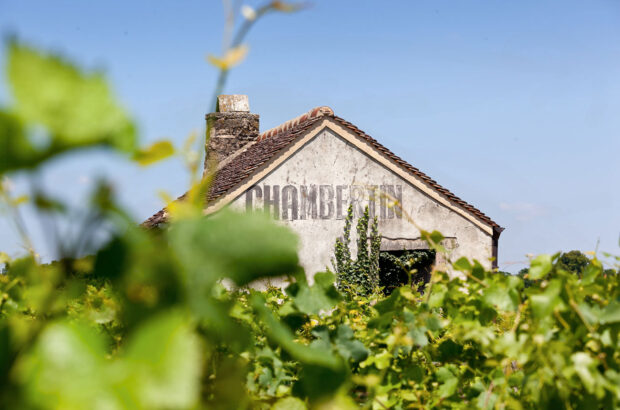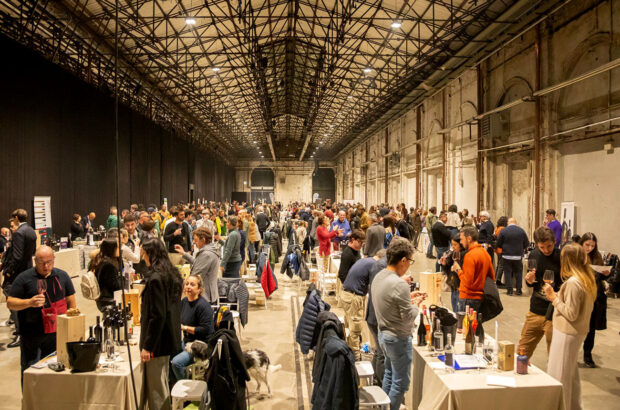The Vines was born out of a project in Mendoza, co-founded by Michael Evans and Pablo Gimenez Riili. Interested parties could buy parcels of vineyard land and work side by side with winemaker Santiago Achával. The collective, cooperative group has grown to 308 members and following on from its success, in early 2020, Evans established The Vines – an ‘explorers’ club’ with a focus on global travel.
The Vines has 76 members who travel the wine world and collaborate with winemakers to create their own wines, some of which are even labelled and bottled for sale by individual members. Wines are released when they’ve completed the appropriate barrel and bottle ageing terms.
This approach to wine tourism allows members to craft wines with industry giants from around the world, working side by side with winemakers such as the Mosel Valley’s Ernst Loosen and Montalcino’s Roberto Cipresso to blend unique wines of their own. The Vines also offers winemaking excursions to regions like the Willamette Valley, Napa, Paso, Champagne and Priorat.

Winemaker Ernst Loosen explains the terroirs of the Mosel during a blending session. Credit: The Vines
Regional culture and terroir
Marie Cecilie von Ahm is the director of site selection and head of wine education for The Vines. She identifies regions where members want to make their own wines and facilitate winemaking partnerships, such as with Champagne’s Drappier, where The Vines members can produce their own personal cuvées.
‘We believe wines are comprehensive products of very special and unique places, so we spend time orienting guests to the region before they arrive. They are sent specific wines to taste,’ said von Ahm.
‘Once they’re on location, we spend a few days tasting the different terroirs of the region, learning about the history and culture and speaking with and learning from different winemakers. Only after that will they work with our partner wineries to make wines of their own from the region we’re visiting,’ she continued.
‘It is important that our guests from The Vines come to the Mosel to experience the region in person,’ said Ernst Loosen. ‘It is the only way for them to get a true understanding of the unique soils, culture and climate that we have.
‘By walking in our extremely steep, slate vineyards, they certainly gain an appreciation for the great effort that goes into wine growing here,’ Loosen continued. ‘It is that understanding of the region that guides them as they develop their own individual blends in the cellar. In the evenings, we always drink some older bottles – a very enlightening experience where they can taste for themselves the immense pleasure of matured Mosel Rieslings.’
Making wines with the experts
Approaching wine as a winemaker takes a different perspective, one that consumers are not always used to. ‘Especially in Champagne, “projecting” the future of the wine is the most important part of the winemaker’s job,’ said Charlene Drappier, eighth-generation member of the Champagne house.
‘The wine is typically released a minimum of three years after we decide on the blending. Therefore, we make a point of having them taste the final product and work backwards. To help them understand what differentiates the final Champagne from the “vins clairs” they are using to blend.’
‘Often, the best vin clair is not the most pleasing one from the selection, so we help them rethink their habits when it comes to tasting: considering acidity levels, inner complexity, etc. Because it challenges everyone’s beliefs, it makes the experience even more eye-opening and unique,’ she added.
‘It’s important for them to taste and understand the characteristics and personality of each component of a wine. Particularly in the case of the Super Tuscans’ said Roberto Cipresso of making wine in Montalcino. ‘We work with three key tools: Merlot, Cabernet Sauvignon and Sangiovese.’
‘Each contributes its unique qualities to the blend. Each person’s choice of percentages to make up their blend is interesting and different. Someone might want a more powerful or spicier wine and a third, perhaps a chewier wine. But each of them will understand exactly what components are giving them the wine they prefer.’
‘Once they understand exactly what composes the wine they are making, and also how it may evolve in the bottle, they begin to much more deeply understand our philosophy of blending as a winemaker,’ Cipresso explained.

Ernst Loosen points out the various Grosse Lagen in the Mosel Valley. Credit: The Vines
‘The idea is to get to know the world through making wine,’ said CEO of The Vines, Michael Evans. Through relationships with some of the most celebrated names in wine, we allow our guests unique opportunities to collaborate with these inventive winemakers to make their own unique wines all over the world.’
In addition to the opportunity to make wine with renowned winemakers, guests are treated to special access to a variety of perks, from dinner in the caves in Champagne to host winemakers opening their personal cellars to Ernst Loosen cooking lunch for them in the vineyards.
These exclusive experiences do not come cheap. With an initial joining fee of $100,000, additional annual fees in the thousands, plus a range of winemaking costs depending on the region, The Vines is a serious investment rather than a casual dabble into the world of winemaking.
The club is looking to expand its current programme offering, opening up to a catalogue of excursions in 12 different regions, as well as pop-up opportunities to make sake in Japan and mezcal in Mexico.







